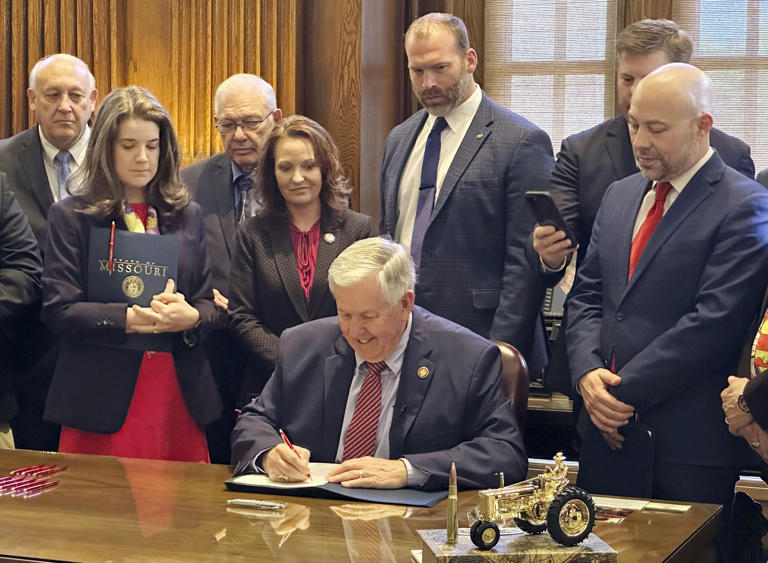Missouri Planned Parenthood, Medicaid exclusion, Governor Mike Parson, Missouri abortion laws, healthcare access, reproductive rights, Planned Parenthood funding, legal challenges in Missouri
Explore the recent legislative changes in Missouri where Governor Mike Parson signed a bill to exclude Planned Parenthood from Medicaid. Understand the implications of this move on healthcare access and reproductive rights, along with the legal battles and public responses it has elicited.

Missouri’s political landscape witnessed a significant shift as Governor Mike Parson, a member of the Republican Party, enacted legislation aimed at excluding Planned Parenthood from the state’s Medicaid program. This recent legislative action aligns Missouri with a handful of states, including Arkansas, Mississippi, and Texas, which have also taken measures to block Medicaid funding for Planned Parenthood.
Governor Parson underscored the motivation behind this legislation by emphasizing his administration’s commitment to pro-life principles. “Our administration has been the strongest pro-life administration in Missouri history,” declared Parson. He highlighted several initiatives under his leadership, such as ending elective abortions in Missouri, enhancing support for mothers, expectant mothers, and children, and ensuring that taxpayer dollars do not fund abortion providers.
This legislative move is not without precedent in Missouri. The state’s Republican legislators have long endeavored to sever Medicaid funding to Planned Parenthood due to its historical association with abortion services. However, it’s noteworthy that Planned Parenthood has ceased performing abortions in Missouri following the state law that heavily restricted abortions after the U.S. Supreme Court’s monumental decision in June 2022, which overturned a nationwide right to abortion.
Despite these efforts, Missouri’s attempts to defund Planned Parenthood have faced legal challenges. The most recent attempt was struck down by the Missouri Supreme Court in February. The court ruled that the defunding effort was unconstitutional, which underscores the contentious and legally complex nature of this issue.
Planned Parenthood’s regional center has vocally opposed the bill, criticizing it for not only disregarding the Missouri Supreme Court’s decision but also for violating federal Medicaid law. The organization argues that this legislative move unjustly obstructs Medicaid patients’ right to access essential health services through Planned Parenthood. These services include birth control, cancer screenings, annual wellness exams, and testing and treatment for sexually transmitted infections (STIs).
In defiance of these legislative hurdles, Planned Parenthood in Missouri has resolved to continue providing services to Medicaid patients at no cost. This decision highlights the organization’s commitment to ensuring that healthcare services remain accessible to those in need, despite the political and legal challenges.
Meanwhile, the debate over abortion rights continues to evolve in Missouri. Recently, abortion-rights advocates gathered more than double the necessary signatures to place a proposal on the Missouri ballot to legalize abortion. This development signifies a robust public response and adds another layer to the ongoing dialogue about reproductive rights in the state. The Secretary of State Jay Ashcroft’s office is tasked with verifying these signatures, and supporters are optimistic about qualifying for the ballot.
This ongoing battle in Missouri reflects broader national conversations and legal disputes over reproductive rights and healthcare access. As states navigate these contentious issues, the outcomes will likely have significant implications for healthcare access, political landscapes, and individual rights across the United States.
Read More-